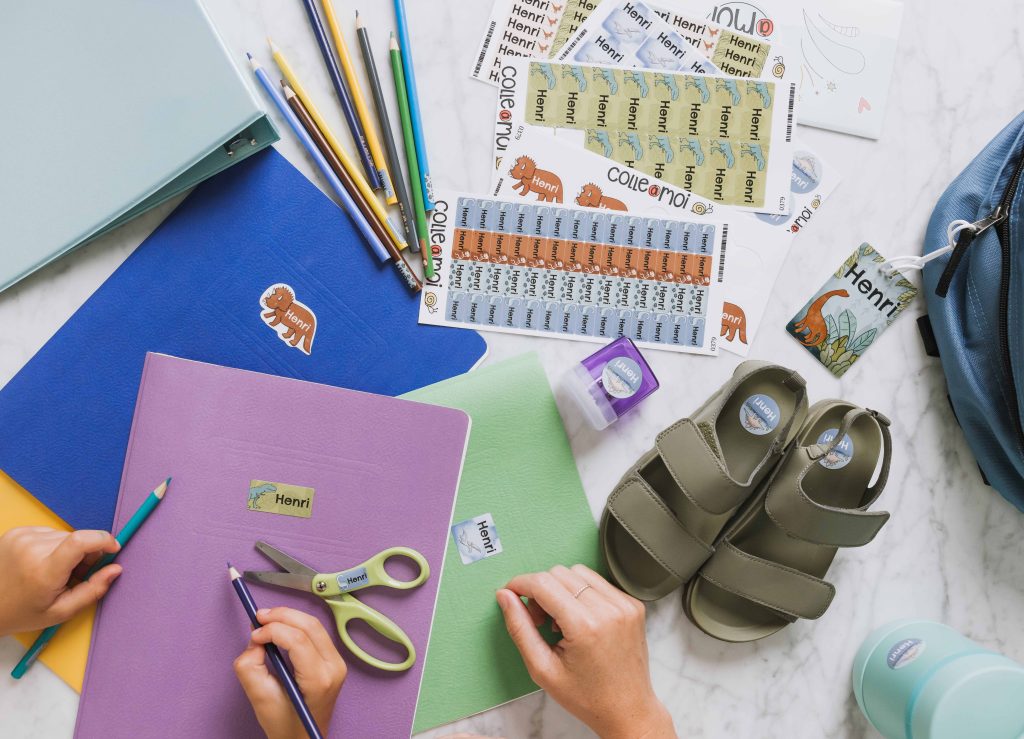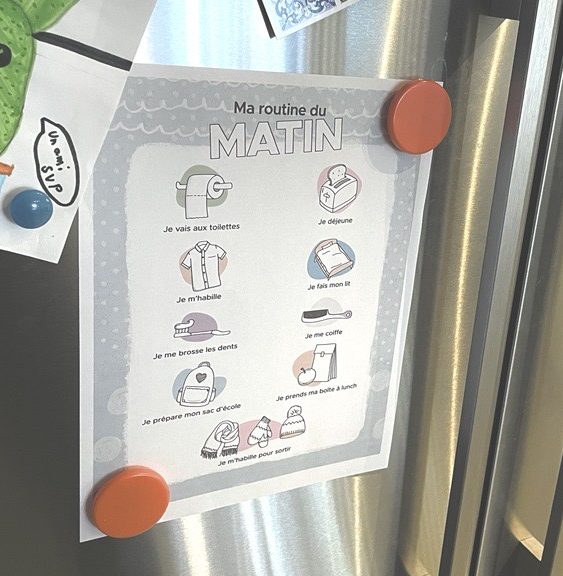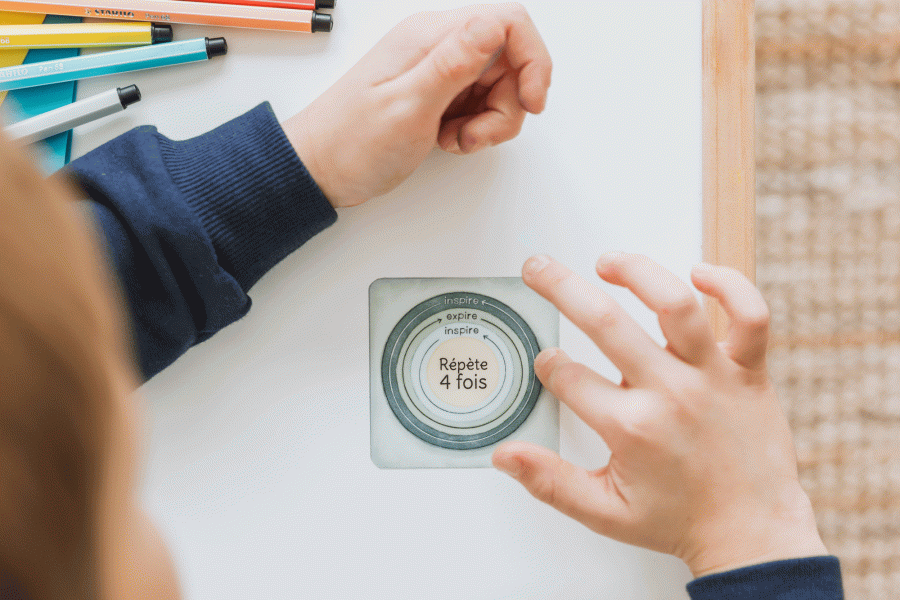With the start of a new school year just around the corner, many parents are likely feeling anxious about how to prepare their children for success.
It’s easy to become overwhelmed with all the expectations that come along with starting a new academic journey, but planning ahead and taking things one step at a time can make getting ready for back to school easier for both you and your child.
In this article, we’ll be discussing some tips for preparing your child for a successful school year so they feel confident walking through those doors on their first day!

1. Before School Starts
The start of a new school year can be an exciting and daunting time for both children and parents. It’s important to ensure your child is as prepared as possible, so they can make the most out of their education this upcoming year!
To help ease the transition into school, here are some helpful school tips that families should consider when preparing their children for a successful year.
Start with creating an environment where learning takes priority: set up designated areas in the home for homework, reading, or other activities.
For many kids, having structure helps reduce anxiety levels while also providing them with peace of mind as they enter back into the classroom setting.
With these pointers in place, families will have taken steps toward ensuring their child has all the tools necessary for success throughout the school year.
It’s now time to focus on getting ready for the first day of class.
2. Get Ready for the First Day Of School
The first school day of elementary can be both exciting and nerve-wracking for children and parents alike.
To make sure the day goes smoothly, it’s important to get school supplies shopping beforehand. You’ll want to make sure your child has a sturdy and comfortable backpack to carry all their necessary school supplies. Speaking of which, you’ll want to purchase pencils, erasers, crayons or markers, a ruler, and a pencil case to keep everything organized. It is recommended that you keep the class supply list, typically provided at the end of June, with you throughout the summer and purchase items only when you come across good deals in retail stores. This approach can help you save time and money, and avoid the frenzy of last-minute shopping in the final week before classes start.
Labeling your child’s belongings with their name is crucial to avoid any mix-ups or lost items. Teachers usually request that all school supplies and belongings are properly labeled, and it’s important for kids to bring them on the first day of school. Therefore, it’s recommended that you prepare in advance by labeling everything before the start of the school year.

So be ready in advance. One option for personalized name labels is Colle à moi, which offers a pack of labels with enough quantity to mark all of your child’s school supplies. Additionally, a bag tag is included that can be attached to your child’s backpack or lunch box. These labels are a convenient way for parents to label their child’s belongings faster and make their lives easier.
Establishing a bedtime routine before school starts is also an important way to ensure academic achievements during the upcoming months. You can download and print our Bedtime Routine PDF. This tool is super useful to give a visual reference of what is expected from the child at bedtime.
Lastly, be sure to prepare a healthy and nutritious lunch and snack for your child, and make sure they know their schedule and where to go on the first day. With these items and a little bit of preparation, your child can start the school year off on the right foot.
3. On The First Day Of School
Now that your child is ready to begin a new school year, there are some important measures you can take to make sure the first day of school runs smoothly.
It is essential for parents to be supportive and provide their children with information days in advance on what people, spaces, and rules they will encounter at middle school.
It’s natural for them to have mixed feelings about being back with their schoolmates after days spent apart during summer break, but reminding them that they can look forward to more positive days ahead can help alleviate any worries they may have.
Please take your child to school and help them find their group, but try to avoid overwhelming emotions when you leave. Your child should feel that you are confident and reassured.
With these school tips in hand, transitioning into middle school should be a smooth process filled with plenty of learning opportunities!
4. During The School Year
Once school is in full swing, it’s important to keep your kids on top of their homework and sleep schedules. Setting a regular time for them to do their work each night will help minimize distractions from mobile devices and other activities.
An alarm clock can also be helpful in ensuring that your child gets up on time and catches the bus or arrives at school when expected. Having an open dialogue and establishing clear boundaries between home life and school life will help your entire family stay organized throughout the year – think of it as having a consistent ‘family calendar’!
The beginning of the year is an exciting one as children get used to their new routines and experiences at school.
Making sure your child has adequate rest throughout the week of school – both physically and emotionally – is essential for making the most out of their days at school.
5. Handle Bullying
It’s normal for children to have school worries, but bullying can take these concerns and amplify them. To help your child prepare for any potential challenges that may arise during the year, it is important to talk openly with them about their feelings and make sure they know how much you care.
Here are a few tips to keep in mind:
- Make time for one-on-one conversations with your child every week, so that they feel comfortable coming to you if something does happen.
- Encourage them to find ways to ride out difficult situations while at school – like taking some deep breaths or counting backward from 10 when feeling overwhelmed by emotions related to bullying.
- If your child has anxiety around going back to school, consider creating a picture book of their favorites with family members who love and support them most; this will remind them they aren’t alone!
As parents, we want our children to thrive despite the difficulties they may face along the way; being proactive about handling issues such as bullying helps ensure a successful start to their school year.
Taking steps now can empower both parents and students alike for a smooth transition into the new academic season ahead.
6. Before And After School Child Care
With the start of a new school year, parents will have to make sure their children are properly taken care of both before and after classes. On school nights, it is essential that there is enough time for homework; this means having an appropriate childcare option in place.
School districts around the country provide numerous options for parents to choose from when seeking out childcare services.
The daycare service also offers catering service for lunch for parents who don’t have the time (or motivation) to cook. Copies of menus can be obtained at most elementary schools so parents know what kind of breakfast or lunch their kids are being provided with, as well as how nutritious it is.
It’s important to get to know the entire childcare crew who will be looking after your little ones while they’re away at school. Lastly, ensure that scholastic books are available on-site to help encourage reading amongst children during free time.
The next step toward helping your kid succeed in the upcoming academic year is by encouraging participation in extracurricular school activities. Providing them with opportunities outside of traditional classroom learning will expand their horizons and give them additional outlets for exploration and creativity.
7. Register to extracurricular activities
As the school season begins, it is important to encourage your children’s participation in extracurricular activities.
Getting involved in clubs or sports can help them build new skills and become more confident when they enter the school building on their first day of school.
You can make this easier for them by taking them shopping for a couple of days before school starts; put some beautiful books into a basket and let them choose what inspires them most!
Research has shown that extracurricular activities help children develop social skills, increase self-discipline, and boost academic performance. They also have an impact on the brains of our children—by getting involved in activities outside of school, kids are giving their minds time to rest from any difficulties they might face at school.
This ‘mental break’ helps keep their enthusiasm alive throughout the year which will lead to better academic results overall. As we move forward with plans to support our child’s mental health, let us remember how vital extracurricular activities can be for helping our little ones thrive during this upcoming school year.
8. Support Your Child’s Mental Health
The previous section discussed the importance of encouraging participation in extracurricular activities. Now, let’s move on to supporting your child’s mental health for a successful school year.
It can be challenging to keep children away from distractions during their day-to-day lives, so one way to promote healthy mental habits is to help them focus on the positive aspects of what they’re doing.
On the day of school go over all the beloved chapter books and best-selling book series they’ll be reading this semester and create a ‘cool notebook’ where they can retreat with their favorite book characters when things get tough or overwhelming.
Talk about some good book recommendations that you have read yourself and make sure they know they can turn to you if they need anything during this school year.
Now that we’ve discussed how to support your child’s mental health, let’s set them up for homework success by providing an environment conducive to achievement!
9. Set Your Child Up For Homework Success
One of the best ways to set your child up for homework success is by creating a dedicated space and schedule. A great first step is to establish an area in their home that’s free from distractions, such as TVs and personal devices. Having everything they need to be organized nearby – like stationery supplies, textbooks, and notebooks – will also help them focus on completing their work efficiently.
It’s also important to have regular breaks while studying so they can stay energized throughout. Letting them take 10-15 minutes between assignments can make all the difference when it comes to keeping their motivation levels high:
- Take Breaks
- Go outside or do some physical activity
- Listen to music or call a friend
- Reward Progress
- Treat yourself to something small after each assignment
- Celebrate larger accomplishments with fun activities!
Being able to recognize progress and reward themselves is an important skill that helps build confidence and keeps enthusiasm alive over time. It allows children to feel proud of what they accomplished without getting discouraged if things don’t go perfectly every time. With this approach, talking about today’s events and tomorrow’s plans becomes easier; helping create a positive outlook towards school life overall!
10. Discussing the Current Happenings and Upcoming Schedule can be Beneficial
It’s important for parents to get involved with their child’s school community in order to ensure a successful year. Participating in activities such as attending parent-teacher meetings, volunteering at events, and joining the parent-teacher association are all great ways to stay informed and connected.
You can also look into local clubs or after-school programs that your kids might be interested in participating in. These activities help develop social skills, provide support networks, and build friendships among students and parents alike.
Additionally, if your children are having trouble making friends or struggling academically, being involved with their school community provides access to resources that may not otherwise be available. Through these connections, you’ll have an opportunity to understand what’s going on in the classroom better and find out how best to help your kids succeed this school year.
Finally, participating in educational programs outside of school will give them a well-rounded education and the tools they need for long-term success.
11. Ease Into The Routine
As the summer days start to become shorter and cooler, it’s time for parents to help their children ease into the back-to-school routine. With a few adjustments in attitude and lifestyle, you can make sure that your child is ready for a successful school year ahead!
One of the best ways to ease into the back-to-school routine is by establishing set bedtimes and wake times at least one week before school starts. This will help regulate everyone’s sleep schedule so that mornings are less chaotic. If you’re having trouble getting your child up in the morning, you may find it helpful to access and print our morning routine PDF. This visual aid can assist your child in following the necessary steps to prepare for the day and avoid the need for constant repetition of instructions.

One of the best ways to ease into the back-to-school routine is by establishing set bedtimes and wake times at least one week before school starts. This will help regulate everyone’s sleep schedule so that mornings are less chaotic. If you’re having trouble getting your child up in the morning, you may find it helpful to access and print our morning routine PDF. This visual aid can assist your child in following the necessary steps to prepare for the day and avoid the need for constant repetition of instructions.
Make sure your child has adequate rest each night, as this will ensure they have enough energy during the day for learning. Additionally, setting up an area where homework can be done without distractions is important – if possible, create a designated workspace with all necessary supplies close by.
To encourage organization skills among students, consider implementing a planner or calendar system. Encourage them to write down upcoming events such as tests and due dates, giving them practice in planning ahead while also ensuring nothing slips through the cracks.
Helping your kids understand how to break big tasks down into smaller chunks can also reduce stress levels when tackling assignments throughout the year. By taking these steps now, you’ll give your child confidence heading into the school year – just what they need for success!
Frequently Asked Questions
How Can I Help My Child Make Friends In A New School?
Making friends in a new school can be intimidating for your child, but there are some things you can do to help them out.
Encourage them to take initiative and introduce themselves to their peers; remind them that everyone is likely feeling just as nervous as they are.
Helping them join clubs or activities at the school will give them an opportunity to meet other kids with similar interests. Most of all, make sure they know it’s okay if not every connection sticks—friendships often take time!
What Should I Do If My Child Is Having Difficulty With A Particular Class?
If your child is having difficulty in a particular class, the best thing you can do to help them is to stay calm and be supportive.
Let them know that you are there for them and offer encouragement throughout their struggles. Encourage open dialogue about what challenges they may be facing so that you can work together to find solutions.
Another tips for parent, remind them that everyone has difficulty with certain subjects at times, and it’s okay to ask for help! Helping your child identify areas where they need extra assistance or tutoring can go a long way toward boosting their confidence and helping them succeed in the classroom.
How Can I Ensure My Child Gets Enough Sleep?
Ensuring your child gets enough quality sleep can be one of the most important factors in their academic success.
Start by setting a consistent bedtime routine, and make sure to stick with it on weekends as well.
Turn off any screens at least an hour before bed, as this will help them relax into a deeper slumber.
Additionally, limit caffeine intake late in the day and ensure they’re getting physical activity each day so that they’ll feel sleepy when it’s time for bed.
With these simple steps, you can help your child get the restful sleep they need to have a successful school year!
How Do I Know If My Child Is Being Bullied?
No parent wants to think their child is being bullied, but it’s unfortunately all too common. As a parent, you can help protect your child by looking out for warning signs of bullying such as:
• avoiding school or certain activities
• appearing anxious or withdrawn
• having physical symptoms like headaches and stomach aches
• exhibiting changes in eating habits
• displaying bruises or other injuries that they won’t explain
If you notice any of these signs, talk to your child about what’s going on – don’t be afraid to ask direct questions if there are indications of bullying.
It’s important to make sure your child feels comfortable talking openly with you so that together you both can take steps towards finding solutions.
How Can I Help My Child Stay Organized And On Top Of Their School Work?
Helping your child stay organized and on top of their school work can seem overwhelming, but it doesn’t have to be!
Start by creating a designated space for studying. This could be a desk in the bedroom or another area of the house that is quiet with minimal distractions.
Encourage your child to write down due dates and assignments in a planner so they don’t forget anything important.
Setting up reminders like alarms on their phone can help them remember time-sensitive tasks.
Finally, break big projects into smaller chunks by dividing them into manageable sections over multiple days rather than one large task at once.
With these school tips, your child will stay organized and ahead of their workload all year long!
Conclusion
Now that the school year is underway, it’s important to keep up with your child’s progress and make sure they have all the support they need.
Check-in regularly with them about how things are going – this could be a conversation over dinner or just sitting down for five minutes at the end of each day.
It’s also important to stay aware of any signs that something might not be right: if they seem stressed, anxious, or withdrawn, take action immediately.
With your help, your child will have everything they need to succeed this school year!







